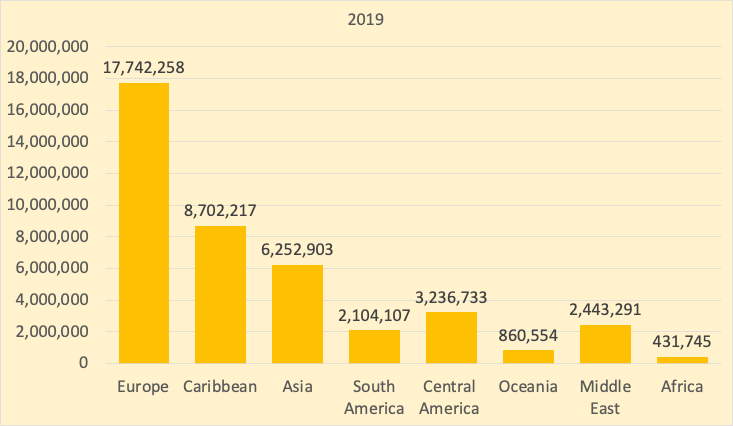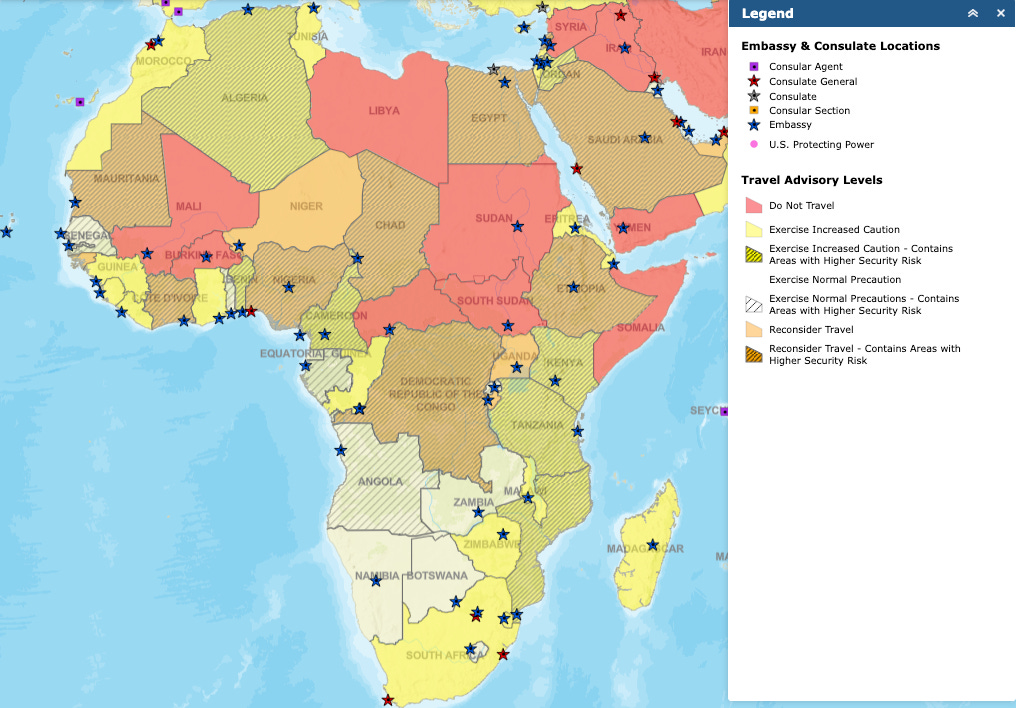Is it safe to travel to Africa?
Evaluating conflicts, crime and disease outbreaks on the African continent
First of all, Africa is amazing! Safety is a concern, yes, but also consider the beauty, the culture, the flora and fauna. Going to Africa could be a once in a lifetime occasion. If you are so lucky to visit Africa then you should go for it. But, taking a few precautions, avoiding certain areas, etc. could really help you avoid disaster. Keep in mind that what is now a hotspot of terrorist activity may be completely peaceful in 10 years. The opposite is also true, so seek out the more peaceful areas now and you may get a chance to visit the other areas on your list when things settle down. Second, consider that even in the U.S. gun violence, violent crime, sexually-transmitted diseases, drug culture and other problems are huge problems—especially in certain areas. It can be avoided in the U.S. by being careful what kinds of activities you involve yourself in and where you travel. The same is true of Africa.
How many people travel to Africa every year?
If we look at 2019, the last pre-pandemic year, you can see that Africa received a much lower share of travelers relative to every other region of the world. Perhaps this is why Africa is such a desirable destination—the absence of modernization, tourist traps, etc. In fact, only one half of a percent of all U.S. travelers to international destinations went to Africa in 2019. Other years are similar (see chart below).
Don’t let the low number of travelers dissuade because that what makes Africa awesome. On the other hand, maybe don’t expect the same level of amenities you see in other more touristy continents such as Europe and the Caribbean.
Crime, terrorism and conflict
The U.S. State Department provides an excellent resource to allow people to evaluate these types of threats for any destination, called “Travel Advisories.” These advisories are mainly aimed at U.S. Federal Government workers who may need to travel to various international destinations. In their case, the advisories are sort of like mandates. But they can also be very helpful for regular U.S. citizens who are weighing the risks of traveling to any of these countries.
You can see in the map (below) taken from the State Department’s website that safety from crime and conflict really varies depending on where you are going. Even within countries there is huge variation so it’s important to drill down deeper than country level to really understand your risks. You’ll notice hotspots in Libya, Sudan, Somalia, etc. all marked in red. On the other end of the spectrum you have Namibia, Botswana and Zambia that are all considered safe to travel to as long as you exercise the normal precautions.
According to Institute for the Study of War in December 2021, there are several hotbeds in Africa that may develop into active conflicts in the near future:
Libya
South Sudan
The Central African Republic
Northern Mozambique
Ethiopia
Cameroon’s north-west and south-west regions
If you are hoping to travel to any of these regions in particular, definitely do your research before you go.
Health considerations
Africa is often considered one of the most dangerous parts of the world, health-wise. Most illnesses are spread via mosquitos or food and water contamination, but there are also sexually-transmitted diseases to consider such as HIV. Malaria and Yellow Fever, in particular, run rampant in parts of Africa. It is highly advised that you visit a travel clinic before your trip to ensure you get the proper immunizations prior to travel. Many countries in Africa require the yellow fever vaccine for entry. Disease transmission is particularly high in areas closer to the equator. This relates to (a) the tropical weather and (b) undeveloped water and sanitation infrastructure.
How to mitigate your risks
There are several things you can do to give a better chance that you will have a safe, enjoyable trip abroad.
Check out the Safe Travel Guide. It gives you tips and instructions on how to safe when you travel to any destination (insurance, health precautions, supplies, etc.)
Travel in groups
Travel with people who are familiar with the area and know the parts of town to avoid
Avoid engaging in criminal activity or excessive partying. Remember that when you are abroad, you are subject to their laws. If you try to transport drugs on your person or get into a bar fight, it could have severe consequences.
Lay low and try to blend in. Don’t wear expensive watches or clothing. Try to fit in with the locals as much as possible unless your movement is limited to tourist-friendly ports in which case such a precaution may not be necessary.
Make sure you get vaccinated before you go. The yellow fever vaccine is required for many countries in Africa. The typhoid vaccine, malaria prescription, and other vaccines may also be recommended.




